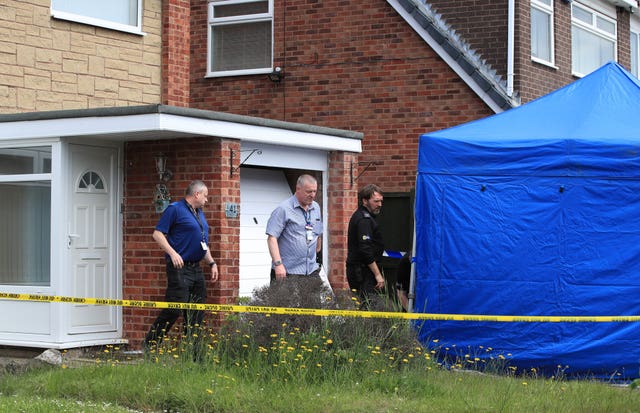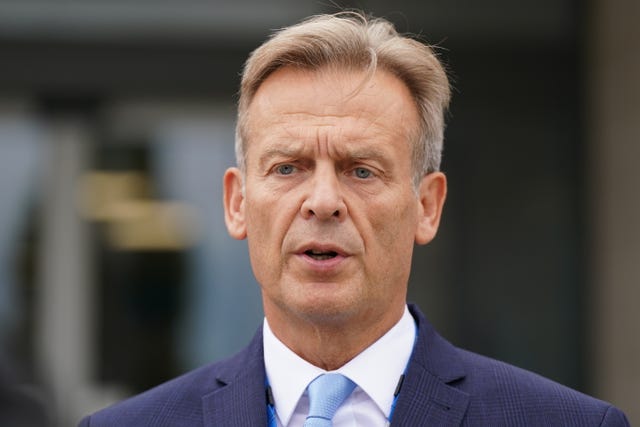Families of Lucy Letby’s victims vow to continue the search for answers
The Countess of Chester Hospital where Letby worked is under mounting pressure over why the nurse was not removed from the neonatal unit sooner.

The families of babies murdered by Lucy Letby have vowed to continue their search for answers as pressure mounted on the hospital where she worked over what more could have been done to stop her killing spree.
The 33-year-old “rogue” nurse was convicted of the murder of seven babies and the attempted murder of six more during her shifts on the neonatal unit at the Countess of Chester Hospital over a year in 2015 and 2016.
The families of her victims have said they have been left “heartbroken, devastated, angry and feel numb” by her actions.
Following her conviction at Manchester Crown Court on Friday, two of the infants’ families said through a lawyer that it is “not the end of our search for answers”.
Yvonne Agnew, head of Slater and Gordon’s Cardiff clinical negligence department, said: “While today marks the conclusion of this trial, it is not the end of our search for answers and our fight for justice for our clients.
“We are determined that lessons are learnt by the Countess of Chester Hospital, the NHS and the wider medical profession so that no babies or parents are put in harm’s way like this again.”
It comes as police said they are reviewing the care of 4,000 babies who were admitted to the Countess of Chester – and also Liverpool Women’s Hospital when Letby had two work placements – going as far back as 2012.
The Chester hospital has come under scrutiny over when it called in police and whether more could have been done to stop Letby.
A non-statutory independent inquiry into its handling of the case has been announced by the Department of Health and the health ombudsman has also said the NHS must improve its working culture when staff raise “warnings of real evil”.
There were 13 deaths on the neonatal unit where she worked over a one-year period, the BBC reported, which is five times the usual rate, and the nurse was on duty for all of them.

She could have been stopped as early as June 2015 when executives held a meeting where it was agreed an external investigation into the deaths would be held but it never was, the broadcaster said.
In October that year, after seven babies had died, a link was made between all the fatal collapses and Lucy Letby, whom prosecutors described as a “constant malevolent presence” in the care of the infants.
Despite this the link was believed to be co-incidental.
Dr Susan Gilby, who took over as the hospital’s medical director a month after Letby was arrested, told the BBC: “The paediatricians were discussing the terrible nights on call that they were having, one of them said ‘every time that this is happening to me, that I am being called in for these catastrophic events which were unexpected and unexplained, Lucy Letby is there, and then somebody else said ‘yes I found that’, and then someone else had the same response.”

Paediatrician Dr Stephen Brearey, who blew the whistle on Letby in 2015, told The Guardian the hospital had been “negligent” in its handling of the killings.
Consultants wanted to go to the police but officers were not called and, in September 2016, the Royal College of Paediatrics and Child Health was called to carry out a review of the unit, the BBC said.
It urged the trust to probe each death individually but this did not happen, it has been reported.
The killer nurse launched a grievance procedure against the paediatricians which found she had been “discriminated against and victimised”, and they were forced to write her an apology letter.

She was later taken off the neonatal unit that month following the deaths of two triplet boys.
She was still working at the trust when she was arrested at her semi-detached home in Westbourne Road, Chester, at 6am on July 3 2018.
During searches of her address, a number of hand-written notes were discovered.
On one green Post-it note, she wrote “I don’t deserve to live. I killed them on purpose because I’m not good enough to care for them”, “I am a horrible evil person” and in capital letters “I am evil I did this”.
Speaking to the BBC, Dr Gilby said of that time: “The strong opinion was that there would be nothing found.
“There was a brief overlap of three or four days between myself and the outgoing medical director, and his parting words to me were ‘you need to refer the paediatricians to the General Medical Council’.”
Former Countess of Chester Hospital NHS Foundation Trust chief executive Tony Chambers, who was in charge at the time, said he would co-operate “fully and openly” with the inquiry.
Dr Nigel Scawn, medical director at the Countess of Chester Hospital, said in a statement on Friday: “Since Lucy Letby worked at our hospital, we have made significant changes to our services and I want to provide reassurance to every patient that may access our services that they can have confidence in the care that they will receive.”
But he walked away without answering as a journalist asked: “Why did hospital managers try to stop Lucy Letby from being investigated?”
Letby will be sentenced on Monday.
She has already indicated through her lawyers that she does not wish to attend her sentencing or face the victims’ families as they give heartbreaking impact statements about the effect her actions have had on them.
Letby was cleared of two counts of attempted murder and jurors did not reach verdicts on six counts of attempted murder.
Prosecutors have said they may seek a retrial on the counts which jurors were unable to reach verdicts on and have 28 days to give notice of any intention to do so.





